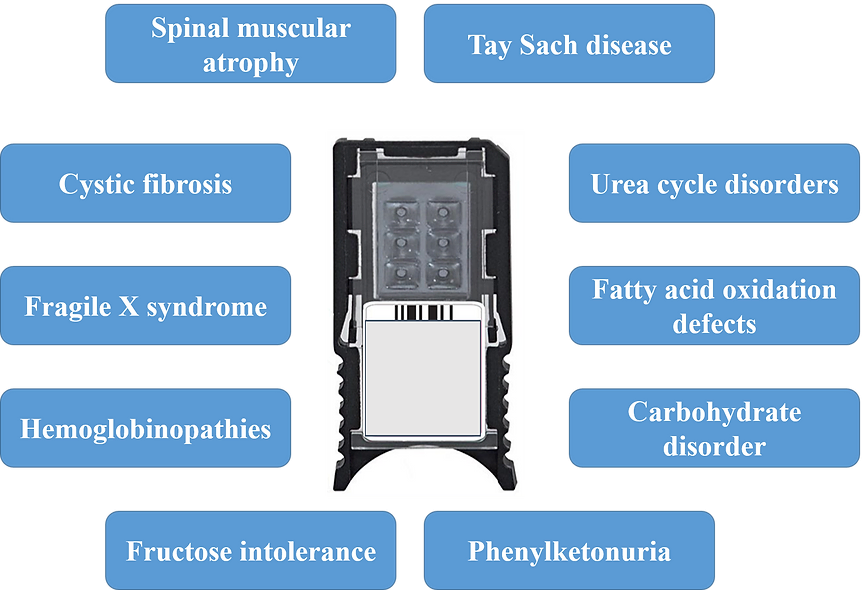Genetic Defect RT-PCR Testing Panel
The global genetic disease diagnostics market is expected to reach $5.97 billion in 2021 (growthplusreports.com), with a CAGR of 9.0% during the forecast period.
Newborn genetic defect testing panels typically include tests for genetic disorders such as cystic fibrosis, sickle cell disease, and Tay-Sachs disease. Some tests may also include genetic screening for chromosomal abnormalities such as Down syndrome, Turner syndrome, and Trisomy 18.
Newborn genetic testing is performed soon after the baby is born. With our testing panel, tests can be run in few minutes to look for a number of genetic defects and chromosomal disorders, including Down syndrome, sickle cell anemia, cystic fibrosis, and others. Specific mutations that run in the family may also be tested for. Additionally, the panel can be further modified to suit the needs of the patients.

Use
1.Detection of genetic defects in newborns: The Newborn Genetic Defect Testing Panel can assist in the detection of certain genetic defects in newborns. This can be advantageous because early detection of genetic defects can lead to early intervention, reducing the severity of the condition.
2.Lower risk of serious health complications: Early detection of genetic defects can help to lower the risk of serious health complications like mental retardation, physical deformity, and developmental delays.
3.Accurate diagnosis: The Newborn Genetic Defect Testing Panel can provide an accurate diagnosis of genetic defects, assisting in the provision of appropriate treatment.
4.Improved quality of life: Early detection and treatment of genetic defects can help to improve a child's and his or her family's quality of life.
5.Genetic disease prevention: The Newborn Genetic Defect Testing Panel can assist in identifying genetic conditions that can be avoided. This may aid in the prevention of serious and life-threatening genetic diseases in the future.